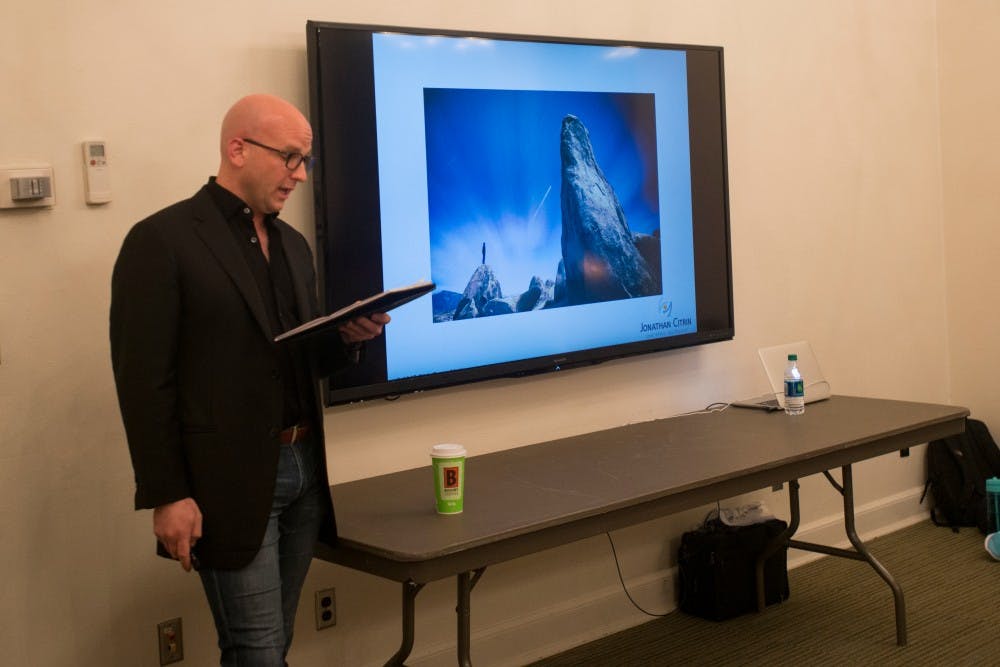Though the Mental Health Awareness Club, or MHAC, at MSU’s meetings began with only about 15 members in attendance, once an email was sent out advertising the club, the last meeting, featuring a guest speaker, had about 50 students filling the Union Lake Michigan Room to the point of seats running out.
Formed in November, the idea came to the president of MHAC, child development sophomore Alison Miner, and vice president, advertising sophomore Jameson Draper, when they were freshmen struggling to find a club that revolved around mental health.
“Like our name says, we want to bring awareness to the campus,” Miner said. “It’s kind of less of a deal than it should be right now. I just feel like if you have a physical condition and you have a broken leg or a broken arm, you would get that treated and you’d probably get a doctor’s note ... but with mental illness, if it’s depression, professors will be like, ‘Oh, you’re just sad, you can just get over it,’ but sometimes it’s harder than that. That’s kind of what we want to do, make it more of a serious issue than just one that has a bad stigma with it.”
On Feb. 21, speaker and author Jonathan Citrin, who reached out to the club, was their first guest speaker and discussed the brain and how it thinks. The club is also hoping to have the director of the MSU Counseling Center come in and speak later in the year.
“I find that we spend so much time, obviously, thinking,” Citrin said. “But we don’t slow down very often to think about how we think and the types of thoughts we’re having and why we’re having those thoughts. And underneath that is the issue of control.”
During the presentation, Citrin put up a photo of a pencil and directed students to focus on it and attempt to turn off all thought and emotion. The purpose of the exercise was to show people firsthand how little control they have over their own thoughts.
“To put an image up and ask people to control their brain for 60 seconds, they get to feel how out of control they are,” Citrin said. “It kind of breaks down that wall, that scary wall of admitting, ‘I don’t really have a lot of control over my mind.’”
Focusing on the image was difficult for the distracted students, Miner said.
“You’re not in control of your thoughts, which is what makes mental illness such an issue,” Miner said. “His whole point was to explain, if you can look within yourself and think about your own thoughts, then eventually you can train yourself to make coping mechanisms of your mental illness.”
Citrin also found it important to discuss multiple angles when trying to understand how the brain functions.
“The brain is so immensely complex,” Citrin said. “You could put a psychologist, a philosopher ... and a neurosurgeon all in a room together and still not come up with answers.”
At meetings, Miner and Draper focus on different mental illnesses and have covered anxiety and depression. Videos are shown during the presentation of these topics, and the videos are followed by an open discussion among members that leads to personal stories and struggles.
“I decided to join because I think that mental health is really overlooked in today’s society and I’ve seen people I know struggle with mental health firsthand,” human biology sophomore Arielle Davidson said. “I’m a part of this club in order to just raise awareness and hopefully improve the counseling department here as well and just get rid of the stigma that surrounds mental health just in general.”
Davidson also said she hopes to learn more about mental health disorders and what causes them to help other students on campus who need the resources.
“The more people that join and the more that the word gets out, the easier it’ll be for people to talk about their own issues even just with their friends,” Miner said. “It typically is a very personal thing for people to talk about their mental illness. ... We think that talking about it is the best way to raise awareness and end the stigma of ‘mental illness isn’t as big of a deal as it truly is.’”
Support student media!
Please consider donating to The State News and help fund the future of journalism.
Discussion
Share and discuss “MSU Mental Health Awareness Club continues to grow, offer support” on social media.







